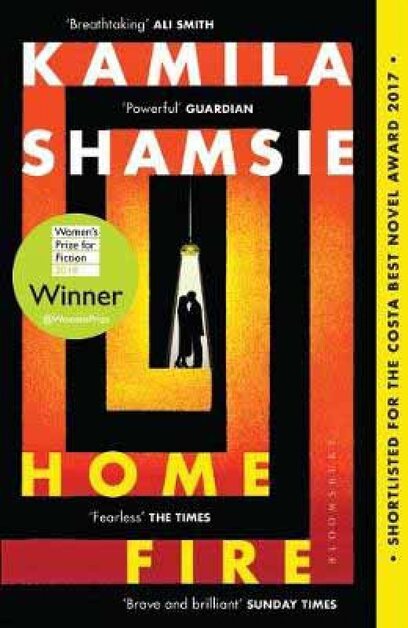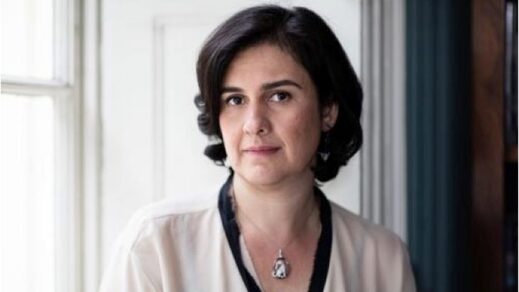
Book Review of Kamila Shamsie's Home Fire
Following the structure and themes of Antigone, Kamila Shamsie’s Home Fire is a wonderful book that is well deserving to have been the 2017 winner of the Women’s Prize for Fiction. It is topical yet timeless – an almost impossible combination to execute effectively, (I have explored the relevance of context in other fiction such as Jonathan Coe’s Middle England and Jeanine Cummins’ American Dirt.)
Home Fire tells the story of twins Aneeka and Parvaiz, who have been raised by their sister Isma in Preston Road, Wembley, London. Constantly under the shadow of the jihadist father Parvaiz never knew, he is the family member who finds it paritcularly difficult to manage the clash between faith, family expectations and the reality of society in our modern world. There is nothing simplistic in the story and the reader is forced to think about their own views, unspoken or unconscious prejudice and speed by which they are likely to jump to conclusions and be manipulated by media. After Isma goes to America to study for a doctorate, the family begins to really unravel. Parvaiz is lured to Syria and it falls to Aneeka to try and get him back to safety. Thus she embarks on a romantic relationship with the son of the Home Secretary, Eamonn. This leads to tragic consequences, that although expected (if you know the story of Antigone) are nevertheless shocking.

Book Discussion Questions on Kamila Shamsie's Home Fire
The Home Secretary is a complex character who is both reviled and praised for his stance against aspects of being muslim. How much sympathy do you have for him both as a politician and as a father?
Whilst, for the main part, the book is written using a regular third person narration, occasionally it uses poetry, tweets and newspaper reports. Discuss the purpose of the change of narrative style.
What did you learn from reading Kamila Shamsie’s Home Fire?
Which character in the book do you most identify with and why?
Did Karamet make the right decision in not allowing Parvaiz’s body to be returned to the UK?
Sum up as concisely as possible the opposing political viewpoints that are being explored in the text.
How much sympathy do you have for the choices that Parvaiz makes?
Who is the hero in the story Home Fire?
Discuss whether and how reading Kamila Shamsie’s Home Fire has changed your own political views or opinions.
How would you describe Aneeka and Isma? Which sister do you like the most and why?
What have you learned from reading Home Fire?
As with Antigone, there is a sense in Home Fire of the events unfolding and outsiders are unable to do anything to prevent the final outcome. At what point in the story do you think it becomes inevitable that the story will play out as it does?
Is the reader presented by Kamila Shamsie as being as powerless as the chorus in a Greek tragedy?
Do you think Home Fire is a worthy winner of the Women’s Prize for Fiction? Why or why not?
Can you connect with the events in Kamila Shamsie’s Home Fire on a personal level? Would you like to share with the group how it resonates with you.
What is Karamet’s opinion of Aneeka? Is his interpretation of her character fair?
Discuss the text from a feminist stance. What views are presented about the roles of women. To what extent and how is the text exploring inequality between men and women?
In the book there are several female characters about whom we know relatively little. These include Aunty Naseem, Eammon’s mum and sister and Isma’s supervisor. Discuss the types of character you imagine them to be.
If Home Fire was a film who would you cast in the key roles?
Bookclub Questions on Home Fire (if you haven't read the book!)
Karamet and Terry love their son Eamonn, but they don’t actually think he is good at anything. He doesn’t work yet lives a luxurious pampered life. His sister, on the other hand is viewed as intelligent, smart and successful. How have parental expectations and beliefs affected your own live and your relationship with siblings?
In Home Fire Shamsie successfully shows how the media portrayal of events gives an extremely biased view of events. Media doesn’t begin to unravel the complexities of ’cause and effect’ regarding personal choices. How inclined are you to believe everything that you read?
The blurb on the back of Kamila Shamsie’s Home Fire includes the quote “it makes you think. Uncomfortably.” When discussing big issues such as religions, racism and radicalism do you speak your views clearly and confidently or do you tend to be reticent about sharing your opinions. If the latter, discuss why this is the case. What conclusions can you draw from this?
Personal Response to Kamila Shamsie's Home Fire
Kamila Shamsie’s Home Fire is a wonderful read. I found it particularly fascinating tracing how it imitated and devliated from following the structure of Antigone. In truth, I’d have never linked the two texts myself! It is a wonderful adapataion of a fantastic play. I’d love to still be teaching so I could compare the texts and make the parallels. Also, it is only now I’ve read the book that I’m beginning to think what an amazing title it has too. Having read Kamila Shamsie’s Home Fire I can’t wait to read more of her books.